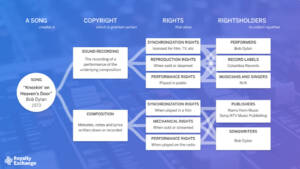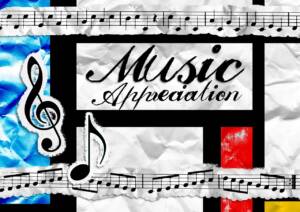The Importance of Networking in the Music Industry: How to Make Connections and Boost Your Career

The Power of Networking in the Music Industry
Building Relationships with Industry Professionals
Building relationships with industry professionals is crucial for success in the music industry. These professionals, such as record label executives, music producers, and talent agents, have the knowledge, experience, and connections that can help propel your career forward. One way to build relationships with industry professionals is by attending music industry events, such as conferences, workshops, and networking mixers. These events provide opportunities to meet and connect with professionals in a more informal setting, allowing you to showcase your talent and make a lasting impression. Additionally, reaching out to industry professionals through social media platforms, such as LinkedIn or Twitter, can also be an effective way to initiate contact and start building relationships. By actively seeking out and nurturing relationships with industry professionals, you increase your chances of gaining valuable insights, opportunities, and support that can significantly boost your music career.
Creating Opportunities for Collaboration
Creating opportunities for collaboration is crucial in the music industry as it allows artists to expand their network, gain exposure, and enhance their creative abilities. One way to create these opportunities is by attending industry events such as music conferences, workshops, and showcases. These events provide a platform for musicians, producers, and industry professionals to connect and potentially collaborate on projects. Additionally, utilizing social media platforms and online communities dedicated to music can also help in finding like-minded individuals to collaborate with. By actively seeking out and fostering these collaborative opportunities, musicians can not only enhance their own skills but also create unique and innovative music that can propel their career to new heights.
Gaining Access to Insider Knowledge
Gaining access to insider knowledge is crucial for aspiring musicians looking to make their mark in the music industry. One effective way to gain this valuable information is through networking. By attending industry events, such as music conferences, workshops, and seminars, musicians can connect with industry professionals who have extensive knowledge and experience. These events provide opportunities to engage in conversations, ask questions, and learn from the experts. Additionally, joining online communities and forums dedicated to the music industry can also provide access to insider knowledge. Engaging in discussions, seeking advice, and sharing experiences with fellow musicians and industry insiders can offer valuable insights and help boost one’s career in the music industry.
Networking Strategies for Musicians
Attending Music Industry Events and Conferences
Attending music industry events and conferences is a crucial step in building a successful career in the music industry. These events provide a unique opportunity to connect with industry professionals, artists, and other like-minded individuals who share a passion for music. By attending these events, you can gain valuable insights into the latest trends, technologies, and strategies that are shaping the industry. Additionally, networking at these events can lead to potential collaborations, mentorships, and even job opportunities. Whether it’s a music festival, conference, or workshop, making the effort to attend these events can greatly enhance your chances of success in the music industry.
Utilizing Social Media Platforms
Utilizing Social Media Platforms
In today’s digital age, social media platforms have become invaluable tools for musicians looking to make connections and boost their careers in the music industry. With the ability to reach a global audience instantly, platforms such as Facebook, Instagram, Twitter, and YouTube offer musicians a unique opportunity to showcase their talent, engage with fans, and connect with industry professionals. By creating a strong online presence and actively engaging with followers, musicians can build a loyal fan base, attract potential collaborators, and even catch the attention of record labels and industry influencers. Additionally, social media platforms provide a platform for musicians to share their music, promote upcoming gigs or releases, and stay connected with their audience in real-time. Therefore, it is crucial for musicians to utilize these platforms effectively and strategically to maximize their networking opportunities and propel their music careers forward.
Joining Musician Associations and Organizations
Joining musician associations and organizations is a crucial step for aspiring musicians looking to boost their career in the music industry. These associations and organizations provide a platform for networking and connecting with like-minded individuals who share a passion for music. By becoming a member, musicians gain access to valuable resources, industry insights, and opportunities for collaboration. Additionally, these associations often organize events, workshops, and conferences where musicians can showcase their talent, learn from industry professionals, and build relationships with potential mentors or collaborators. Being a part of such associations and organizations not only helps musicians expand their professional network but also enhances their credibility and visibility within the industry. It is through these connections that musicians can discover new opportunities, gain exposure, and ultimately advance their careers in the music industry.
Effective Communication in Music Networking
Crafting an Engaging Elevator Pitch
Crafting an engaging elevator pitch is crucial for musicians looking to make connections and boost their careers in the music industry. An elevator pitch is a concise and compelling introduction that effectively communicates who you are as an artist and what sets you apart from others. It is essential to capture the attention of industry professionals or potential collaborators within a short span of time, such as during a chance encounter in an elevator or at a networking event. To create an engaging elevator pitch, it is important to focus on your unique selling points, such as your musical style, influences, and accomplishments. Additionally, highlighting any notable experiences or collaborations can help to make a lasting impression. By crafting a compelling elevator pitch, musicians can effectively showcase their talent and leave a lasting impression on industry professionals, opening doors to new opportunities and advancing their careers.
Active Listening and Building Rapport
Active listening and building rapport are essential skills for anyone looking to succeed in the music industry. When networking, it is crucial to not only hear what others are saying but also to truly understand and engage with their words. Active listening involves giving your full attention, asking relevant questions, and showing genuine interest in the person you are conversing with. By actively listening, you can establish a connection and build rapport with industry professionals, artists, and potential collaborators. Building rapport goes beyond just listening; it involves finding common ground, being empathetic, and creating a comfortable and trusting environment. When you actively listen and build rapport, you not only enhance your networking abilities but also increase your chances of forming meaningful connections that can propel your music career forward.
Following Up and Maintaining Relationships
Following up and maintaining relationships is crucial in the music industry to ensure long-term success and career growth. After making initial connections, it is important to follow up with individuals you have met to solidify the relationship. This can be done through various means such as sending a personalized email, connecting on social media platforms, or even scheduling a follow-up meeting or phone call. By staying in touch and showing genuine interest in the other person’s work, you can build a strong network of industry professionals who can support and collaborate with you throughout your career. Additionally, maintaining relationships requires ongoing effort and engagement. This can involve attending industry events, supporting fellow musicians’ projects, and regularly reaching out to check in and offer assistance. By consistently nurturing your connections, you can establish a reputation as a reliable and valuable member of the music community, which can open doors to new opportunities and collaborations.
Building a Strong Online Presence for Networking
Creating a Professional Website and Portfolio
Creating a professional website and portfolio is crucial for musicians looking to make connections and boost their career in the music industry. In today’s digital age, having an online presence is essential for showcasing your talent and attracting potential collaborators, industry professionals, and fans. Your website should be visually appealing, easy to navigate, and include important information such as your bio, music samples, upcoming shows, and contact details. Additionally, creating a portfolio that highlights your past work, including recordings, performances, and collaborations, can provide credibility and demonstrate your versatility as an artist. By investing time and effort into developing a professional website and portfolio, musicians can effectively showcase their talent and increase their chances of making meaningful connections in the music industry.
Engaging with Online Music Communities
Engaging with online music communities is a crucial aspect of building a successful career in the music industry. These communities provide a platform for musicians, producers, and industry professionals to connect, collaborate, and share their work. By actively participating in these communities, artists can gain exposure to a wider audience, receive feedback on their music, and even find potential collaborators or mentors. Additionally, online music communities often host discussions, webinars, and workshops that offer valuable insights and knowledge about the industry. Therefore, it is essential for aspiring musicians to take advantage of these platforms to expand their network, learn from others, and ultimately boost their career prospects.
Utilizing Online Networking Platforms
Utilizing online networking platforms is crucial for musicians looking to make connections and boost their careers in the music industry. With the advent of social media and various online platforms, musicians now have the opportunity to connect with industry professionals, fellow musicians, and potential fans from all over the world. Platforms such as LinkedIn, SoundCloud, and Bandcamp provide a space for musicians to showcase their work, collaborate with others, and gain exposure. Additionally, online networking platforms offer the convenience of connecting with industry professionals and potential collaborators without the limitations of geographical boundaries. By actively engaging in these platforms, musicians can expand their network, discover new opportunities, and ultimately enhance their chances of success in the music industry.
Collaborative Networking in the Music Industry
Finding and Connecting with Potential Collaborators
Finding and connecting with potential collaborators is crucial in the music industry as it opens up opportunities for growth and creativity. One effective way to find potential collaborators is by attending industry events such as music conferences, workshops, and showcases. These events provide a platform for musicians, producers, and other industry professionals to come together and network. Additionally, online platforms and social media can also be valuable tools for connecting with potential collaborators. Websites like SoundCloud and Bandcamp allow artists to showcase their work and connect with like-minded individuals. Engaging in online communities and forums specific to the music industry can also help in finding potential collaborators. Building relationships with fellow musicians and industry professionals not only expands your network but also enhances your chances of finding the right collaborator who shares your artistic vision and goals.
Navigating the Dynamics of Collaborative Projects
Navigating the Dynamics of Collaborative Projects in the music industry can be a challenging yet rewarding experience. Collaborative projects often involve working with multiple artists, producers, and industry professionals, each bringing their unique skills and perspectives to the table. To successfully navigate these dynamics, effective communication and teamwork are crucial. It is important to establish clear goals and expectations from the beginning, ensuring that everyone involved is on the same page. Additionally, being open to compromise and embracing different creative ideas can lead to innovative and exciting collaborations. Building strong relationships and fostering a positive and respectful working environment are also key factors in successfully navigating collaborative projects in the music industry. By understanding and respecting the dynamics of collaboration, musicians can harness the power of teamwork to create music that is greater than the sum of its parts and propel their careers forward.
Leveraging Collaborative Opportunities for Career Growth
Leveraging collaborative opportunities is crucial for career growth in the music industry. By actively seeking out and participating in collaborations with other musicians, producers, and industry professionals, artists can expand their network, gain exposure to new audiences, and enhance their skills. Collaborative projects allow musicians to tap into different creative perspectives, learn from others’ experiences, and explore new genres or styles. Additionally, working with established artists or industry insiders can provide valuable mentorship and guidance, opening doors to new opportunities and increasing credibility within the industry. Ultimately, leveraging collaborative opportunities not only helps musicians grow their careers but also fosters a sense of community and camaraderie within the music industry.
Networking Etiquette and Professionalism in the Music Industry
Approaching Networking with Respect and Authenticity
Approaching networking with respect and authenticity is crucial in the music industry. When connecting with others, it is important to genuinely value their work and contributions. Instead of solely focusing on what they can do for your career, take the time to understand their perspective and show a genuine interest in their music or projects. Building relationships based on mutual respect and authenticity will not only help you establish a strong network but also create a positive reputation within the industry. Remember, networking is not just about self-promotion, but also about fostering meaningful connections that can lead to collaborations, opportunities, and long-term success.
Maintaining Professionalism in Interactions
Maintaining professionalism in interactions is crucial for success in the music industry. When networking, it is important to always present oneself in a professional manner, whether it is in person or online. This includes being punctual, dressing appropriately, and using proper etiquette. It is also essential to be respectful and considerate towards others, as this can leave a lasting impression. Additionally, maintaining professionalism means being prepared and knowledgeable about the industry, staying updated on current trends, and being able to articulate one’s goals and aspirations clearly. By consistently demonstrating professionalism in interactions, musicians can build a strong reputation and establish valuable connections that can greatly boost their career.
Giving and Receiving Constructive Feedback
Giving and receiving constructive feedback is crucial in the music industry as it allows artists to grow and improve their craft. When receiving feedback, it is important to approach it with an open mind and a willingness to learn. Constructive criticism can provide valuable insights and perspectives that may not have been considered before. It is essential to separate personal feelings from the feedback and focus on the constructive aspects that can help enhance one’s skills and career. On the other hand, giving constructive feedback requires tact and empathy. It is important to provide specific and actionable suggestions rather than vague or negative comments. By offering constructive feedback, musicians can contribute to the growth and development of their peers, fostering a supportive and collaborative environment within the music industry.








